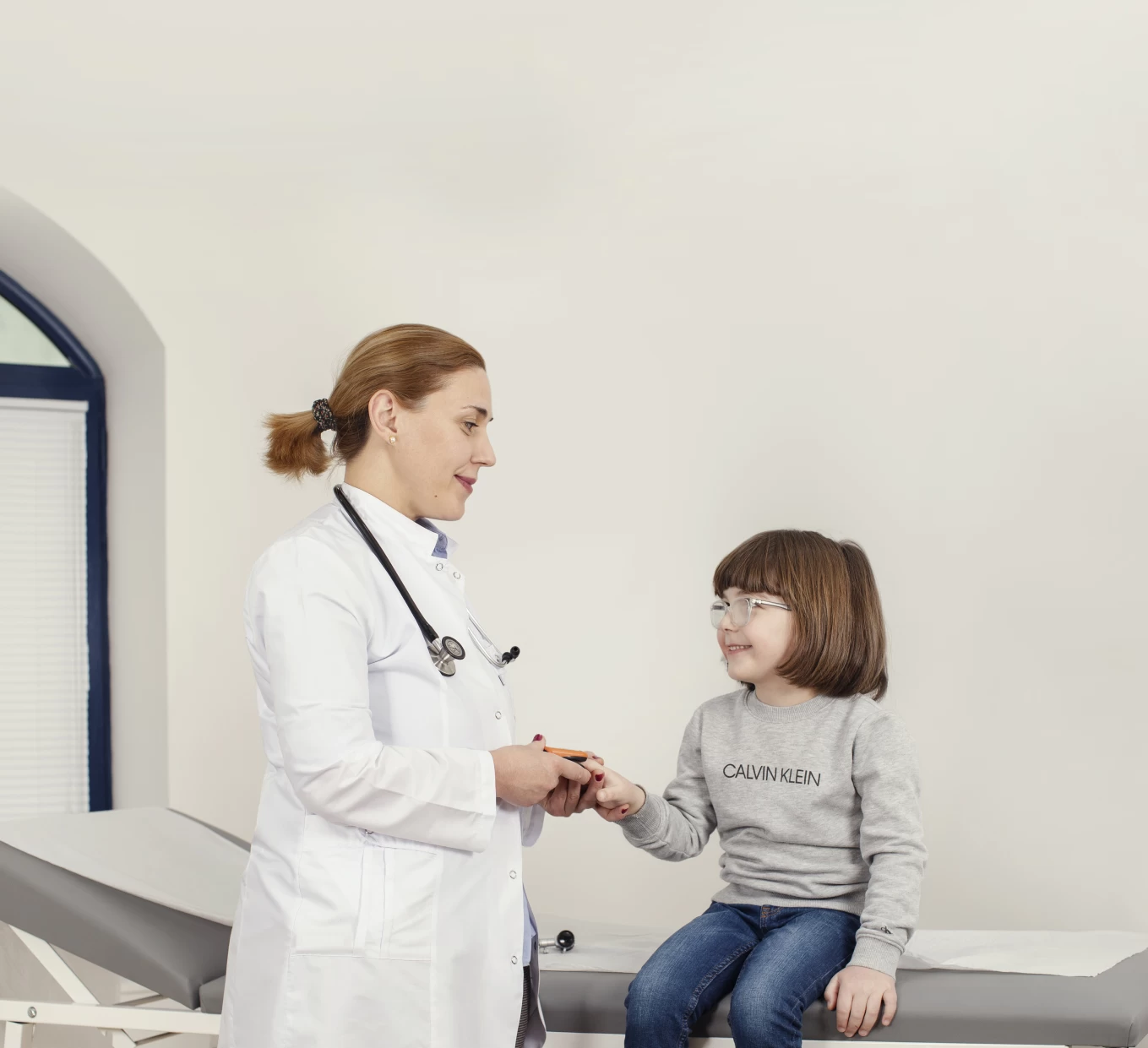Pediatrics Service
Department Head - Pediatrician Tea Abajandadze
The health and well-being of a child is the top priority of every parent. Caring for health begins during pregnancy and continues into adulthood.
After birth, the child goes through many stages of growth and development in the process of adapting to the new environment. Along with physical development, mental, psycho-emotional, and social health are also of great importance. All these aspects of health and development are essential in forming the overall well-being of the child.
Medicine consists of various disciplines and specializations. Specialists who monitor and, when necessary, treat the health of children or adolescents are called pediatricians. Pediatrics is a medical field that is radically different from adult medicine. This is because the bodies of newborns, infants, children, and adults are significantly different from each other.
Pediatricians are typically responsible for the diagnosis and treatment of a wide range of diseases that commonly occur in children.
It can be said that the pediatric department is the primary healthcare link for children, meaning that in the case of potential complications, it is to this department that you should turn at the early stages.
The Importance of Pediatrics in Child Health
Children are constantly developing and growing, which is a complex and intricate process. This is why it is essential to assess these processes and determine individual needs in order to prevent future complications.
Pediatricians assist parents and children in managing conditions like colds or flu, allowing for proper management of the condition and preventing complications. Additionally, specialists in this field provide early diagnosis of diseases such as asthma, diabetes, congenital heart diseases, etc. They also offer advice on nutrition, child safety, and psycho-emotional health.
Therefore, the primary goal of pediatrics is the early detection of physical injuries, infections, genetic and congenital diseases, diseases of various organs, and dysfunctions, followed by referral to the appropriate specialist for further treatment.
When Should You Consult a Pediatrician?!
Due to the physiological differences from adults, children require regular monitoring of their health status. This is what pediatrics encompasses:
- Supervision of a healthy child includes a specific number of visits according to age. During pediatric visits, the child’s health and physical development are assessed, nutritional status is evaluated, healthy eating is promoted, risk factors affecting growth and development are identified, developmental delays are detected and corrected, and diseases are detected and prevented.
- In the case of acute or chronic symptoms and diseases, relevant clinical, laboratory, and instrumental investigations are performed, followed by appropriate treatment.
- Preventive Check-Up visits, in addition to general medical examinations, include various laboratory and instrumental tests, screening for anemia, thyroid disorders, diabetes, determination of vital minerals and vitamins, and blood, urine, and stool analyses, as well as ultrasound of the abdominal cavity and urinary-genital systems.
- The goal of the Check-Up program is to prevent diseases and pathological processes, identify and manage problems at the early stage, before symptoms appear.
For your child's health and well-being, it is essential to visit the pediatrician at least once a year to assess their development and growth and ensure that their data are in line with age-appropriate standards.


